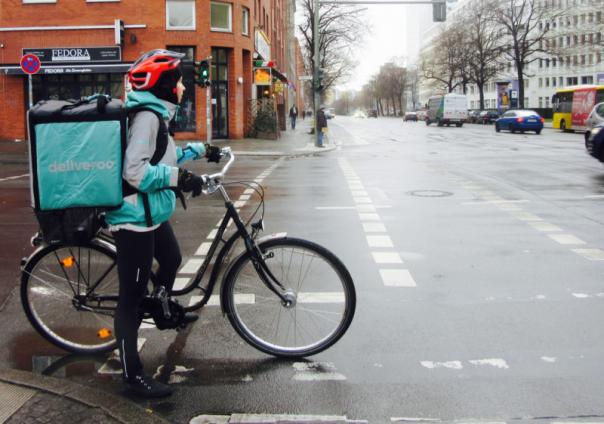

Why should caterers who handle feeding in workplaces, hospitals, schools, universities, prisons, military installations and travel hubs look to the retail sector for ideas?
That question has a ready answer when you look at just how much we eat out-of-home these days.
GlobalData’s recent ‘Global Foodservice Trends’ report indicates that 25% of consumers worldwide eat out-of-home at least once a week.
In fact, 7% of consumers eat out-of-home between two and three times a day. That translates into 13% of all eating occasions now taking place out-of-home.
Driving that growth is a vibrant international restaurant sector that is fiercely competitive and thus highly incentivised to innovate. Something that is particularly true of the casual dining sector.
In other words, there are lessons to be learned from the successes and failures we can see happening on the streets of our towns and cities.
The GlobalData report identifies several key trends that point to ideas that public sector catering operators should take on board.
Number one is the health factor, although the story is more nuanced than simply a move towards straightforwardly healthy food choices.
What was once a binary choice between ‘health’ or ‘indulgence’ has morphed on the high street into a blending of the two concepts, or ‘healthy indulgence’, which allows consumers to feel they are treating themselves while also ticking the health box.
A good example of this is the growth in interest in vegetarian and even vegan burgers, which is already big in the US and moving into the UK through brands such as Mooshies, Hello Burger and Honest Burger.
Another area highlighted by the report is ‘convenience’, which high-street operators are now taking to the next logical step, namely ‘ultra convenience’.
Examples of this would be mobile ordering and delivery options that make it even easier for customers to order ahead, or the move by some casual dining chains to encourage patrons to eat off the whole menu at any time of day, with no breakfast- or lunchtime-only dishes.
Price is always going to be a significant factor, points out the report, but customers aren’t obsessing about it and prefer to think in terms of value, and are ready to spend more if convinced.
And customisation is proving a popular idea, with consumers finding the chance to have personal input into their meals quite appealing. This can be as simple as taking the Subway model and adapting it to a restaurant, with Mexican chain Chipotle offering a very successful example of how to make it work. However, burger and pizza operations also lend themselves very well to this concept.
To point the way forward for the workplace and public sector in terms of taste trends, the report says four cuisines dominate right now: Italian, American, Indian and Chinese account for almost 70% of restaurant cuisines by menu item share.
However, it also highlights five important trends it has identified through the social media posts of key ‘influencers’, and these are Korean, Peruvian, Greek, Thai and Vietnamese.
Leading contract caterer Elior UK recently refreshed its You & Life programme, which embraces the ‘wellness’ trend reflected in high-street brands such as Chop’d and Leon and brings all its health, nutrition and wellbeing activity together.
The programme has been updated to reflect the latest Government guidance and has been strengthened with a raft of tactical measures to improve health and wellbeing.
Dr. William Cook, head of nutrition & dietetics, Elior UK, says: “People are more interested in ‘wellness’ than ever. But at the same time, we’re constantly bombarded with conflicting advice. At Elior, we think it’s our responsibility to help people achieve the right balance for them.
“Rising health problems linked to poor diets is an area where we can make a real, positive difference. That’s why we’ve refreshed You & Life with the latest Government guidance, a more modern look and feel, and given it the teeth it needs to help people lead healthier, happier lives.”
The new programme will promote health and wellbeing in three key ways: by educating customers, clients and employees via the dedicated You & Life website; at healthy-eating events; and with clear customer-facing information, making it easier to recognise healthier choices.
The programme also includes ‘health by stealth’ recipe tweaks (e.g. using lower-salt, rindless grilled bacon in the all-day breakfast sandwich) as well as smart operational strategies like ‘Remove, Reduce, Replace’ (i.e. removing sugar sachets from tables, reducing the amount of sugar in recipes, and replacing high-sugar items with healthier snacks).
As a result, Elior’s cakes, biscuits, and puddings already meet the 2020 category targets Public Health England has set on sugar reduction.
In terms of ultra-convenience and making the healthy choice the easy choice, Elior has launched a new concept to sit inside the new You & Life programme. Called Elements, this award-winning range puts a strong focus on fresh, natural food (the ‘elements’ for a super life) and has been hugely popular, forcing an average sales uplift of 8%.
A true marriage of high street and foodservice was announced recently, with Aramark, a global leader in food and facilities, and Jamie Oliver launching a new 10-year partnership that will see the two companies work together on an exclusive basis to enhance food concepts and delivery across workplaces in northern Europe, including the UK and Ireland.
The partnership will enable Aramark to introduce social dining experiences to client sites, as well as to develop exclusive concepts for Aramark clients.
The two companies aim to work on positively impacting the way food services are delivered by focusing on innovative culinary developments, staff training, and enhancing client wellbeing and productivity through nutrition and food.
Aramark has a foodservice presence in the B&I, education, healthcare, manufacturing and defence sectors in the UK, while Jamie Oliver’s restaurants are firm favourites on the high street, particularly among millennials, who now make up 48% of the workforce.
Jamie Oliver Restaurant Group operates premium brands in the restaurant sector including Jamie’s Deli, Jamie Oliver’s Diner, Jamie Oliver’s Pizzeria and Jamie’s Italian.
Frank Gleeson, Aramark’s president in northern Europe, says: “We are passionate about the health and wellbeing of those we serve every day, so it was a natural fit for us to partner with Jamie Oliver.
“Together, we have an opportunity to create innovative culinary experiences that will revolutionise productivity and health in workplaces.
“We serve hundreds of thousands of people in workplaces, schools and colleges every day, so we have a fantastic opportunity of working together where we can set the agenda for health and nutrition and have a real and lasting impact on people’s lives.”
Casual dining brand Vapiano, meanwhile, is launching in UK and European travel hubs as part of a new partnership with global restaurateur HMSHost International.
Specialising in pizza and pasta, Vapiano currently operates in Europe, Australia, Africa, Asia, and North and South America, with the new sites opening as a franchise model with HMSHost International.
The partnership is set to launch Vapiano in airports, train stations and outlet centres across the UK, Scandinavia, Germany and the Netherlands, with each occupying a 250-350m2 space. They will also offer services tailored to the needs of travellers, including both eat-in and takeaway options.
Walter Seib, HMSHost International chief executive, explains what attracted them to the Vapiano brand: “Within our portfolio, the brand is an enrichment for our organisation and reflects the needs of our guests. Vapiano is known for its food preparing ‘à la minute’ in front of the guest.”
Any look at the high street cannot ignore the delivery revolution being led by the likes of Deliveroo, but being rapidly followed by online takeaway ordering service Just Eat, which has recently announced plans to set up its own delivery service.
Deliveroo has ‘partnered’ with restaurants through the launch of a support site aimed at helping them reduce everyday expenses and to broaden its own offer to businesses beyond the increased sales and revenue associated with listing on the platform. At a time when restaurants have seen costs increase across their industry, the company is using its scale to negotiate favourable rates and discounts to benefit the wide range of restaurants it works with.
It is also offering restaurant employees benefits and discounts to boost staff retention.
Offers to Deliveroo restaurant partners include:
• Up to 5% off green energy bills and waived broker fees
• Up to 28% discounts on job advertisement boards, reduced fees for using temps, and preferential rates for specialist recruitment firms
• Up to 10% off printing services, restaurant Wi-Fi discounts, plus discounts in areas such as business rate reviews.
Might this development provide a template foodservice operators could use to establish similar arrangements that help their own business partners and staff?